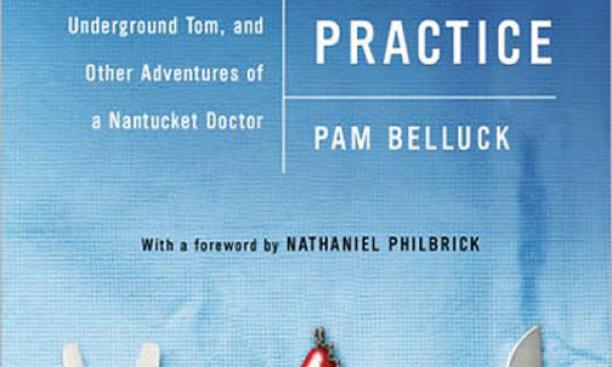

Nantucket is an easy, high-speed ferry journey from the mainland. But when the island is fogged in or storm-battered, those 30 miles can mean life or death. Timothy Lepore (rhymes with peppery), the only full-time surgeon on Nantucket, is the one who must operate on a patient if an emergency occurs, far from the backup support of mainland hospitals.
He takes his role so seriously that he rarely leaves the island; when he is there, he does not touch alcohol. He also makes 3 a.m. house calls, plucks ticks off dead deer to test for diseases, performs cesarean sections, sets bones, consults on homicides, and treats the occasional pet horse.
An outspoken political conservative (who nevertheless is the only doctor to perform abortions east of Boston), Lepore is an archetype of the islander: slightly odd and fiercely independent.

New York Times health and science reporter Pam Belluck ’85 has been following Lepore since she profiled him in 2007. The result is her first book, Island Practice: Cobblestone Rash, Underground Tom, and Other Adventures of a Nantucket Doctor (PublicAffairs), about a doctor who is vital to a small, isolated community in an era of increasingly impersonal medicine. Indeed, not only does Lepore help patients at all hours, but he often cuts deals with those who cannot afford his services — such as accepting a weekly delivery of oatmeal cookies in exchange for an appendectomy.
Lepore’s commitment to doing what is “right” is set among a community often known as a gilded summer playground. “People have a sense that Nantucket is a lot more homogeneous than it is,” Belluck says. “But it has an incredible diversity of immigrant populations and economic diversity.”
The year-round community struggles with the effects of its isolation and an unstable, tourism-based economy. Alcoholism, depression, and teen suicide are major problems, but Nantucket is a loyal and supportive place that embraces and returns Lepore’s commitment to it.
As the book paints a picture of the island and its year-round and summer residents, it deftly transitions into a commentary on today’s health-care system. While Lepore spends more time with his patients than most doctors and refuses to turn away those who cannot pay, this comes at a price: He always is on call, and increasingly, he chafes against the demands of the new, corporate owners of the island’s hospital.
Lepore, who has run 44 consecutive Boston Marathons, is 67 years old. Both he and the island look nervously toward the future. “This is a quintessential American character and story,” Belluck says, “the kind of relationship people want when they talk about what we’re missing in health care in America.”
WHAT SHE’S READING: The Inner Game of Music by Barry Green and W. Timothy Gallwey
What she likes about it: “As a jazz flutist, I find that it helps me free myself from all the inhibitions one can lay on oneself when performing and improvising; you get out of your head and stop overthinking.”
